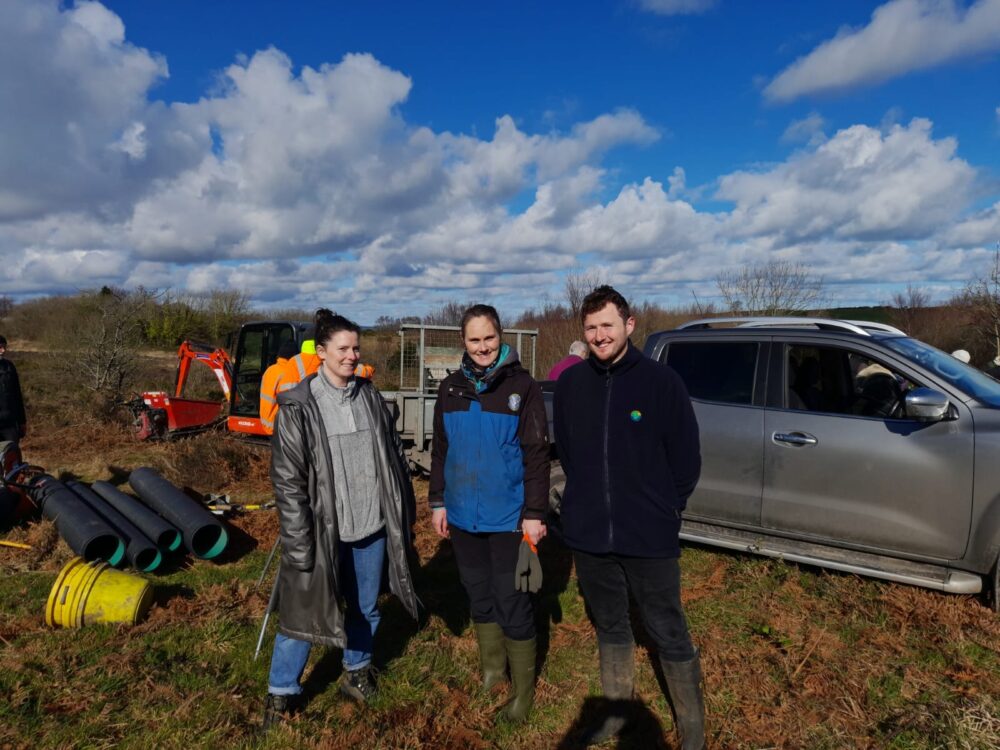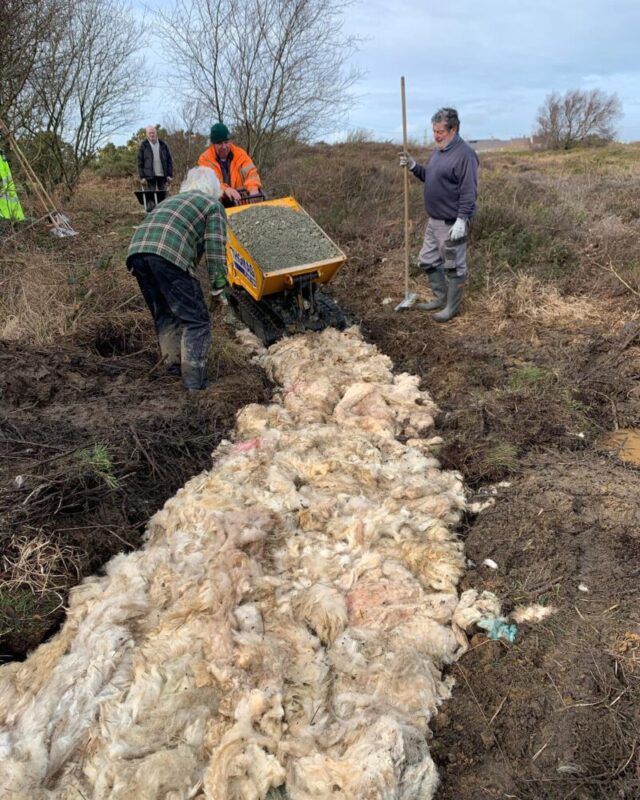Walkers flock to new footpaths made with wool

Menter Môn has launched an initiative which sees the use of sustainable and natural alternatives to plastics in the construction of footpaths. In collaboration with the Isle of Anglesey County Council, under the ‘Made with Wool’ project, locally sourced Welsh wool is used as a base to cross wet areas and repair footpaths.
The wool paths have been trialled in locations across Anglesey, with local community volunteers and Cwlwm Seiriol building paths near Aberlleiniog Castle and Rhos Llaniestyn in Llanddona. The paths are constructed by laying fleeces as an eco-friendly substitute for the synthetic membrane normally used as a foundation for walking paths. The wool was sourced from Betws y Coed through British Wool’s traceability scheme, through participating in this scheme the framers will receive a premium price for their wool.
The project team consulted with groups that have successfully constructed wool footpath across the UK, before beginning on the work in Anglesey. The Aberlleiniog site, is of national archaeological significance, the work there was granted permission by CADW and the path in Rhos Llaniestyn was granted permission by Natural Resources Wales.

Elen Parry, the ‘Made with Wool’ project manager said: “It’s fantastic to be able to work alongside Anglesey Council and our volunteers to deliver these wool paths that will hopefully be used by the local community for years. Our aims is to develop sustainable uses for wool which will guarantee a fairer price for farmers – this particular project does this as well improving our lived environment and minimises our impact on our surroundings. We will be putting together a ‘how to’ guide on constructing the paths in the hope that other groups can use the information and follow our lead to use sustainable materials to build their paths.”
Around 700 fleeces have been used in this project. The paths will be revisited towards the end of summer to check for any settlement and topped up where needed. The use of sheep wool is an old technique, historically used to repair paths, however, it remains relatively unused in contemporary construction. The hope is that the trial will raise awareness and promote the use of sustainable and natural alternatives to plastics in the construction of footpaths while introducing wider uses and demand for Welsh wool.
The project is co-funded through LEADER and the ‘Made with Wool’ project.





